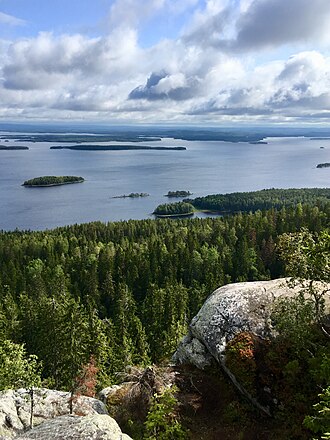National park
National parks are protected areas of natural beauty, wildlife, and biodiversity that have been designated by national governments around the world for conservation purposes and to provide opportunities for recreation and education to the public. These parks are crucial for the conservation of ecosystems, endangered species, and natural resources, and they play a vital role in environmental protection and sustainability.
History
The concept of protecting natural areas for public enjoyment and conservation purposes dates back to the 19th century. The world's first national park, Yellowstone National Park in the United States, was established in 1872. This groundbreaking act set a precedent for other countries to follow, leading to the creation of national parks worldwide.
Objectives
The primary objectives of national parks include:
- Conservation of flora and fauna
- Protection of ecological diversity and natural heritage
- Promotion of ecotourism and recreational activities
- Education of the public about environmental and conservation issues
- Scientific research in ecology, geology, and other related fields
Management
National parks are typically managed by national or federal government agencies dedicated to conservation and land management. These agencies are responsible for enforcing regulations, maintaining the parks, and facilitating research and educational programs. Management strategies often involve balancing the needs for conservation with the demands for public access and use.
Challenges
National parks face numerous challenges, including:
- Environmental degradation due to pollution and illegal activities
- Climate change impacts on ecosystems and biodiversity
- Overcrowding and overuse from tourism
- Conflicts over land use and resource extraction
- Funding and resource limitations for park management and conservation efforts
Global Significance
National parks are recognized globally for their importance in preserving the world's natural beauty and biodiversity. Many are designated as UNESCO World Heritage Sites for their outstanding universal value. International cooperation and efforts, such as the IUCN's categorization of protected areas, help to promote and standardize conservation efforts across borders.
Examples
Some of the most famous national parks include:
- Yellowstone National Park (USA) - Known for its geothermal features and wildlife
- Serengeti National Park (Tanzania) - Famous for the annual wildebeest migration
- Great Barrier Reef Marine Park (Australia) - The world's largest coral reef system
- Banff National Park (Canada) - Renowned for its mountainous terrain and lakes
See Also
| This article is a stub. You can help WikiMD by registering to expand it. |
Transform your life with W8MD's budget GLP-1 injections from $125.
W8MD offers a medical weight loss program to lose weight in Philadelphia. Our physician-supervised medical weight loss provides:
- Most insurances accepted or discounted self-pay rates. We will obtain insurance prior authorizations if needed.
- Generic GLP1 weight loss injections from $125 for the starting dose.
- Also offer prescription weight loss medications including Phentermine, Qsymia, Diethylpropion, Contrave etc.
NYC weight loss doctor appointments
Start your NYC weight loss journey today at our NYC medical weight loss and Philadelphia medical weight loss clinics.
- Call 718-946-5500 to lose weight in NYC or for medical weight loss in Philadelphia 215-676-2334.
- Tags:NYC medical weight loss, Philadelphia lose weight Zepbound NYC, Budget GLP1 weight loss injections, Wegovy Philadelphia, Wegovy NYC, Philadelphia medical weight loss, Brookly weight loss and Wegovy NYC
|
WikiMD's Wellness Encyclopedia |
| Let Food Be Thy Medicine Medicine Thy Food - Hippocrates |
Medical Disclaimer: WikiMD is not a substitute for professional medical advice. The information on WikiMD is provided as an information resource only, may be incorrect, outdated or misleading, and is not to be used or relied on for any diagnostic or treatment purposes. Please consult your health care provider before making any healthcare decisions or for guidance about a specific medical condition. WikiMD expressly disclaims responsibility, and shall have no liability, for any damages, loss, injury, or liability whatsoever suffered as a result of your reliance on the information contained in this site. By visiting this site you agree to the foregoing terms and conditions, which may from time to time be changed or supplemented by WikiMD. If you do not agree to the foregoing terms and conditions, you should not enter or use this site. See full disclaimer.
Credits:Most images are courtesy of Wikimedia commons, and templates, categories Wikipedia, licensed under CC BY SA or similar.
Contributors: Prab R. Tumpati, MD






